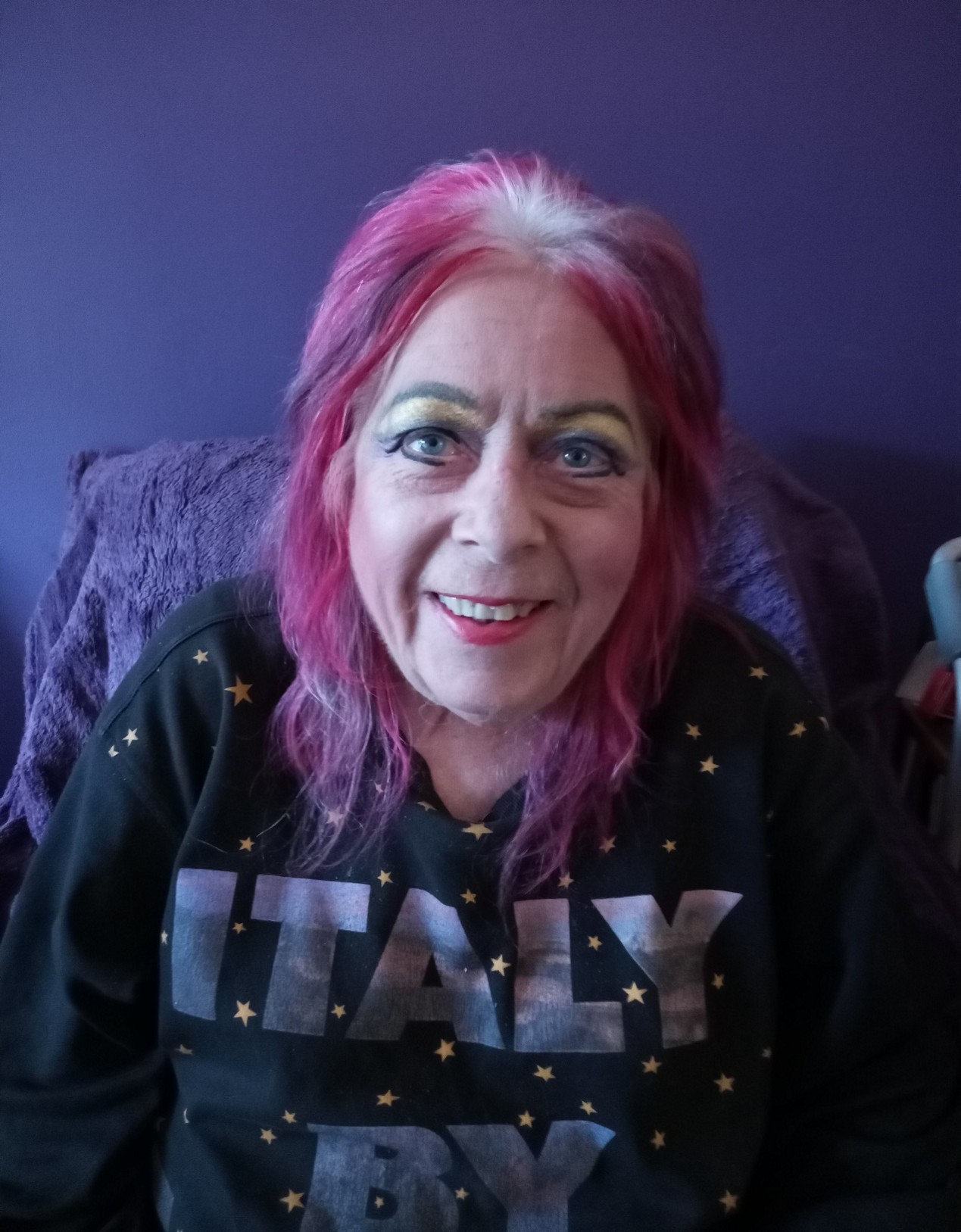Working with your healthcare team
COPD self-management plan
A COPD self-management plan keeps important information about your condition in one place.
Using a COPD self-management plan can improve your quality of life and reduce how many times you have to go to hospital.
Your plan should include personalised advice about your COPD, including information about your symptoms, treatments, self-management and flare-ups (exacerbations).
You make your self-management plan with your healthcare professional and review it regularly together, so it includes the most up to date information about your COPD treatments. Your family or carers might want to feed into the plan too.
We have more information about COPD self-management plans, including a free plan and more information about how to use it.
COPD reviews
You should see your healthcare professional to review your COPD at least once a year. If you have more severe COPD or you’re using treatments like long-term oxygen or non-invasive ventilation, you might need more regular reviews.
Regular reviews can help you manage your COPD symptoms and make sure your self-management plan stays up to date.
We know that sometimes it can be difficult to speak to your GP, that’s why we’ve created advice about getting a GP appointment. It’s filled with information that could help you book your review, even if you usually have them at a hospital or with a specialist team. You can also call our helpline team who can give you advice on all aspects of living with a lung condition.
Prepare for your COPD review
If you’re not sure if you are getting the right care or are confused about what questions to ask during a COPD review, our COPD Patient Passport will help.
The passport asks you simple questions about your COPD care. You’ll then receive a personalised report, which can help you understand which parts of your care are going well. It will also give you a list of things you can ask your GP or healthcare professional at your next review or appointment.
You can take this report to your review and use it to start a conversation about how to get the best care for your condition.
Managing other health conditions
A lot of people with COPD have one or more other long-term health conditions. This is called a comorbidity.
Common comorbidities include:
- heart disease
- thinning of the bones (osteoporosis)
- anxiety
- depression
- gastroesophageal reflux (GERD).
Getting the right treatment and support for any other long-term health conditions you have can help you live well with COPD.
Staying healthy
Here are some ways that you can live well with COPD. We have more information about living well with a lung condition, including advice about how things like sleep, weather, holidays, pollution and celebrations can affect your lungs.
Keeping active
Regular physical activity has a lot of health benefits. It can help you manage your COPD symptoms like breathlessness and improve your quality of life.
We have more information about staying active with a lung condition, including a Keep Active programme specially designed for people with lung conditions.


I always take the stairs to get a little bit of activity in!
I believe that exercise is the most important way to help your lungs, especially swimming. Although, I have had to change how I swim because of my COPD.
I do a wide range of exercises, such as yoga, Zumba, aquafit and swimming. At first, I was continuously breathless, but I’ve learnt to accept the breathlessness and ignore it as much as possible.

Eating well and keeping a healthy weight
A well-balanced diet with plenty of fruit and vegetables and not too much salt can help you to stay strong and fit. It can also help you fight off chest infections and keep your lungs healthy.
If you have COPD, it’s also important to eat a balanced diet and maintain a healthy weight because:
- Some people with COPD lose weight without meaning to. For example, because eating makes you feel breathless, or you find it difficult to shop and prepare meals.
- Being overweight could make your breathlessness worse.
If you need support with healthy eating or your weight, your GP might also be able to refer you to a dietitian. Joining a pulmonary rehabilitation (PR) course can also help you learn more about healthy eating.
We have more information about healthy eating and weight for people with lung conditions.
Taking care of your mental health
Living with a long-term condition can affect every part of your life. Physical symptoms such as breathlessness and coughing, feeling more tired and being less active could make you feel stressed, anxious or depressed.
There is help available:
- speak to your GP about mental health support
- read our information about managing your mental health for people with lung conditions
- join one of our support groups or our Health Unlocked forum to connect with other people who understand what you’re going through.
Breathing techniques and positions
Breathing techniques can help you feel more in control of your breathing and cope better when you get out of breath. You can also change the position that you’re sitting or standing in to recover from breathlessness.
We have more information about managing breathlessness, including techniques, positions and videos to help.
Sex and relationships
Having an illness like COPD can affect your relationships and sex life. It can make you feel tired, anxious or depressed.
We have more information about sex and relationships, including going on dates if you have a lung condition, positions that could help you feel less out of breath during sex and advice about sex and medications.
Your healthcare professional can also help you with sex and relationship issues. They’re there to help and will be used to talking about these things with people.
End of life
COPD is a progressive condition. This means that COPD gets worse over time and has no cure.
Talking about the end of life can be stressful, upsetting or tiring. You don’t have to do it all at once. Preparing for the end of life is a continuous process and can take time.
It’s important to think about and write down your decisions ahead of time. This is so friends, family and healthcare professionals know what you want. It’s helpful to do this in advance in case you’re unable to express your wishes in the future.
Preparing for the end of life is known as advance care planning (ACP). This is an umbrella term for the process of sharing your wishes about your future health and care.
Read more about advance care planning and taking control of your choices.
Support for COPD
Social prescribing
If you are breathless, it is easy to become socially isolated and lonely. Social prescribing connects you to activities, groups and services in your local area that can help support your practical, social and emotional needs. It‘s sometimes called community referral and usually happens through your GP.
If you use social prescribing, you will get a link worker. Together you will discuss what matters most to you and develop a personalised care and support plan. It could include things like financial advice or help finding local community groups you could join.
The National Academy for Social Prescribing has more information about social prescribing, including how you can access it.
Support groups
You might find speaking to other people with COPD useful. Join one of Asthma and Lung UK’s online or in-person support groups or our Health Unlocked forum to connect with other people with similar experiences to you.


I go to a Singing for Lung Health group every week. For me this is the best therapy ever. The sheer joy of getting involved in music and the fun we have making new friends is nothing short of miraculous

Work, money and financial support
There is help available if your COPD is affecting your job, or you need help with money because of your lung condition. We have advice about:
- how to ask for reasonable adjustments or time off work
- welfare benefits for people that are retired, unable to work because of their lung condition, or on a low income
- financial support for working people, including advice about everyday costs, like prescriptions, food and energy
- work and benefits for carers.
Looking after someone with COPD
When someone close to you has COPD and needs your support, it is natural to want to help them. If you look after someone you might feel anxious, frustrated or stressed. These emotions are normal. Talk about your worries with the person you are caring for, with their healthcare team, or family and friends.
If you care for a family member or partner, it is important to continue to enjoy things together and for the person with COPD to keep as active and independent as they can. Read our more detailed information for carers.

Get support
Call or email our helpline for support with any aspect of living with a lung condition – whether you need practical advice, emotional support, or answers to health-related questions. You can also find support through our groups.








